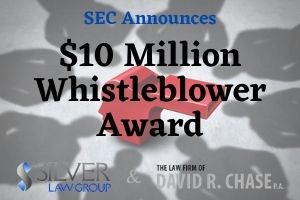 On October 29, 2020, the SEC (Securities and Exchange Commission) announced that it had awarded more than $10M to a whistleblower who provided original information that prompted an investigation.
On October 29, 2020, the SEC (Securities and Exchange Commission) announced that it had awarded more than $10M to a whistleblower who provided original information that prompted an investigation.
A press release on the award stated that the whistleblower provided “substantial, ongoing assistance to SEC staff throughout the investigation.” The release notes that the whistleblower communicated with SEC staff over 12 times and, in addition to providing evidence, also helped the SEC understand communications and complex issues. Continue reading
 SEC Whistleblower Lawyer Blog
SEC Whistleblower Lawyer Blog


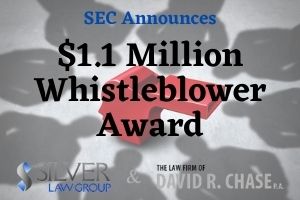 The Securities and Exchange Commission (SEC) announced that it has awarded over $1.1 million to a whistleblower whose “independent analysis led the staff to look at new conduct during an ongoing investigation.”
The Securities and Exchange Commission (SEC) announced that it has awarded over $1.1 million to a whistleblower whose “independent analysis led the staff to look at new conduct during an ongoing investigation.”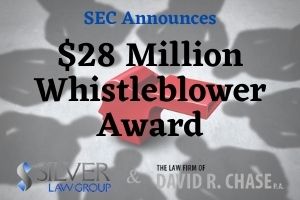 On November 3, 2020, the SEC (Securities and Exchange Commission) announced in a press release that it had awarded more than $28 million to a whistleblower who “provided significant information that aided the SEC in bringing a successful enforcement action.”
On November 3, 2020, the SEC (Securities and Exchange Commission) announced in a press release that it had awarded more than $28 million to a whistleblower who “provided significant information that aided the SEC in bringing a successful enforcement action.”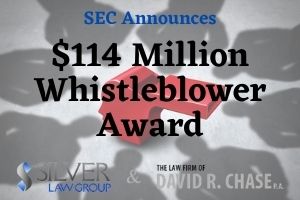 The Securities and Exchange Commission (SEC) announced a $114 million whistleblower award, which is the highest in the program’s history. The whistleblower’s information and help led to a successful enforcement action.
The Securities and Exchange Commission (SEC) announced a $114 million whistleblower award, which is the highest in the program’s history. The whistleblower’s information and help led to a successful enforcement action. On September 30, 2020 the Securities and Exchange Commission (SEC) announced that it had awarded nearly $5 million to four whistleblowers who provided information on wrongdoing to the SEC that led to a successful enforcement action. The SEC has awarded $175 million to 39 whistleblowers this fiscal year, which is
On September 30, 2020 the Securities and Exchange Commission (SEC) announced that it had awarded nearly $5 million to four whistleblowers who provided information on wrongdoing to the SEC that led to a successful enforcement action. The SEC has awarded $175 million to 39 whistleblowers this fiscal year, which is 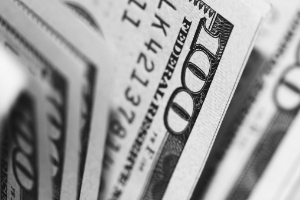 The Commodities Futures Trading Commission (CFTC) has announced a whistleblower award without revealing the dollar amount of the award in order to protect the whistleblower’s identity.
The Commodities Futures Trading Commission (CFTC) has announced a whistleblower award without revealing the dollar amount of the award in order to protect the whistleblower’s identity.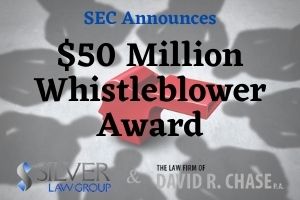 On Thursday, June 4, 2020, the Securities & Exchange Commission (SEC) announced a $50 million whistleblower award, to a whistleblower who assisted authorities with a currency trading investigation.
On Thursday, June 4, 2020, the Securities & Exchange Commission (SEC) announced a $50 million whistleblower award, to a whistleblower who assisted authorities with a currency trading investigation. On July 21, 2010, the Dodd-Frank Act was signed into law, establishing one of the most critical pieces of reform legislation, regarding securities and commodities actions worldwide. The purpose of the Act was to promote transparency, financial stability and improve accountability in the financial markets following the 2008 financial crisis.
On July 21, 2010, the Dodd-Frank Act was signed into law, establishing one of the most critical pieces of reform legislation, regarding securities and commodities actions worldwide. The purpose of the Act was to promote transparency, financial stability and improve accountability in the financial markets following the 2008 financial crisis.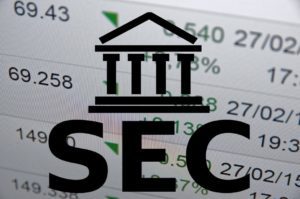 On Tuesday, April 28, 2020, the Securities & Exchange Commission (“SEC”) stated that it had awarded more than $18 million to another whistleblower this year. Tuesday’s award marks the fifth whistleblower award this month and the eleventh this year.
On Tuesday, April 28, 2020, the Securities & Exchange Commission (“SEC”) stated that it had awarded more than $18 million to another whistleblower this year. Tuesday’s award marks the fifth whistleblower award this month and the eleventh this year. On Thursday, April 16, 2020, the Securities & Exchange Commission (“SEC”) stated that it had
On Thursday, April 16, 2020, the Securities & Exchange Commission (“SEC”) stated that it had